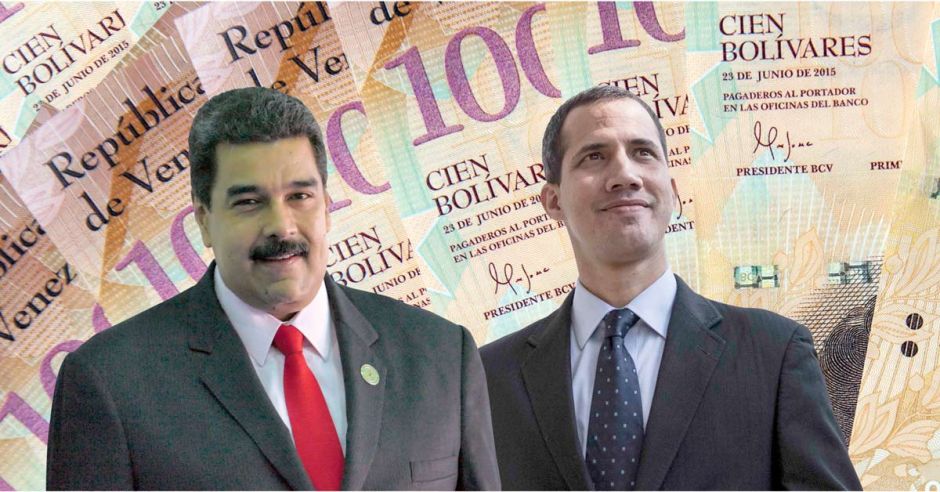There is no certainty of a change in the Venezuelan political regime. What is certain is that Venezuela, once one of Latin America’s richest countries, is in economic collapse. An economy plagued with shortages of everything.

After taking office in 2013, President Nicolas Maduro tightened his grip on power. His opponents complained of economic mismanagement, corruption, and political oppression. His critics inside and outside the country have talked for years of regime change.
Now, on January 23, Maduro’s opponents declared his government invalid and the country saw one of their own declare himself a replacement.
The two sides are locked in a standoff over who is the legitimate authority in Venezuela.
Both Maduro and opposition leader Juan Guaido claim to be president. Both have support from different parts of the world.
Maduro has unwavering support from Russia and China, two countries with heavy investments in Venezuela. Not unexpected, Cuba, Bolivia and Nicaragua back Maduro.
Meanwhile, Guaido has the support of the United States, who according to Maduro is behind the effort to remove him and make a grab for Venezuela’s oil.
Also supporting Guaido is the Lima Group of countries, formed in 2017 to establish a peaceful exit to the crisis in Venezuela, that includes Argentina, Brazil, Canada, Chile, Colombia, Costa Rica, Guatemala, Honduras, Mexico, Panama, Paraguay and Peru.
Maduro still has control of key assets including the military, media, police and state-run oil company Petroleos de Venezuela SA, or PDVSA.
However, on Monday of this week, the U.S. a new set of sanctions against the Maduro government, which includes a block of US$7 billion in PDVSA assets and “only select transactions and activities with the Venezuelan oil company will also be permitted to continue for a limited time”.
Maduro called it a “robbery” of Citgo, a United States-based refiner, transporter and marketer of transportation fuels, that is majority-owned by the PDVSA.
Guaido, the president of the opposition-dominated National Assembly, claims to be the ‘legitimate’ leader of the country, he would assume Maduro’s powers on an interim basis until new elections can be held.
Maduro’s response was to break diplomatic relations with the United States.
Guaido aruges that Maduro’s election in May 2018 and swearing in for a second term earlier this month is illegitimate. Citing Article 233 of Venezuela’s Constitution, Guaido claims he has temporary presidential power as head of the National Assembly when the presidency is otherwise vacant.
In a Jan. 15 column for the Washington Post, Guaido also cited Article 350, which says Venezuelans “shall disown any regime, legislation or authority that violates democratic values, principles and guarantees or encroaches upon human rights.”
Maduro’s reelection to a second six-year term was fraught with fraud, coertion of government workers to vote for Maduro and the jailing and disqualification of politicians opposing Maduro.
The elections results were dismissed by the United States, the European Union and the countries of the Lima Group. In the eights between the election in May 2018 and the swearing in on January 3, 2019 the opposition never accepted Maduro’s reelection but he was still president until the end of his term.
According to the Washington Post, typically, governments recognize leaders that have effective control of their countries. There are exceptions. In 1989, the U.S. withheld recognition of Manuel Noriega as Panama’s leader after he canceled elections in which polls had him trailing badly. (Three months later, the U.S. invaded and Noriega was deposed.) In 2011, the U.S. recognized Libyan rebels as their nation’s governing authority even while Muammar Qaddafi was still fighting to hold onto power.
For now Maduro seems to have the full support of the Venezuela’s armed forces. But that could change, tip the balance, with shifting support for Guaido by the army rank-and-file.
Top leaders of the army have pledged support for Maduro on state television. They have benefited under the Hugo Chavez’s protege from government contracts and their control of ports of the PDVSA.
Guaido, on the other hand, is seeking to win over the support of officers by offering amnesty.
Then there’s Venezuela’s oil reserves, the largest in the world.













